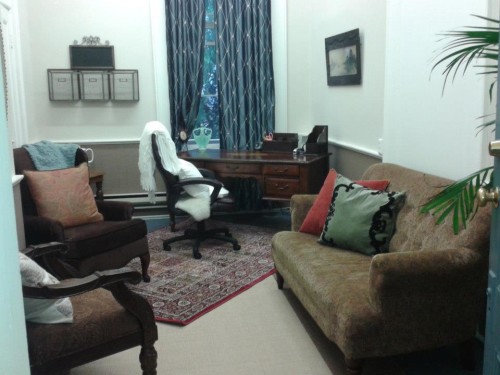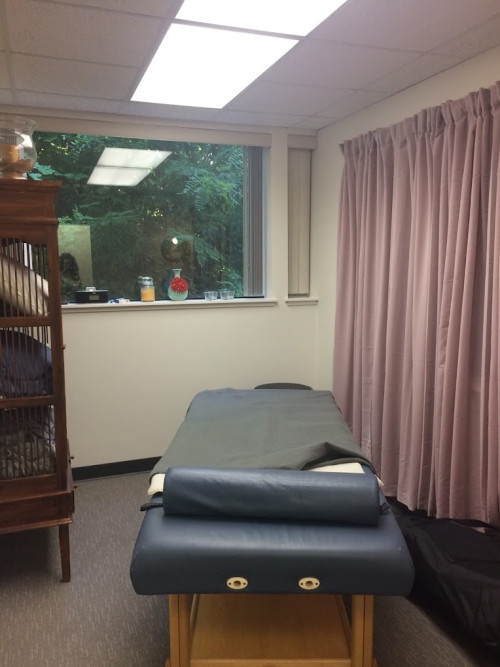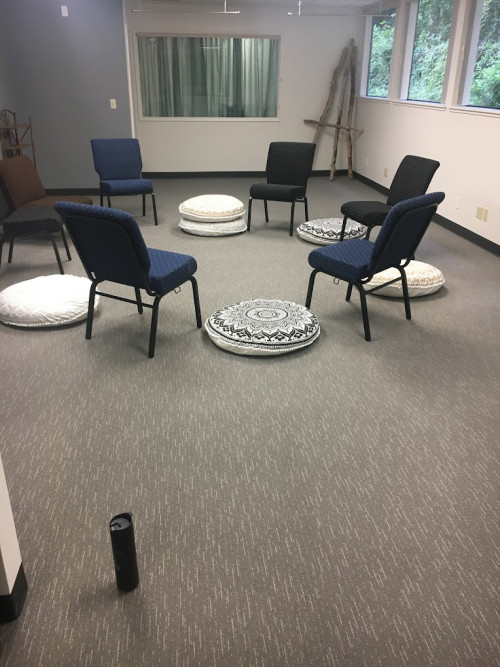





Integrative Treatment Trauma Center Portland
Treatment Focus
This center treats mental health conditions and co-occurring substance use. You receive collaborative, individualized treatment that addresses both issues for whole-person healing.
Primary Level of Care
Outpatient treatment offers flexible therapeutic and medical care without the need to stay overnight in a hospital or inpatient facility. Some centers off intensive outpatient program (IOP), which falls between inpatient care and traditional outpatient service.
This provider hasn't verified their profile's information. Are you the owner of this center? Claim your listing to better manage your presence on Recovery.com.
Treatment Focus
This center treats mental health conditions and co-occurring substance use. You receive collaborative, individualized treatment that addresses both issues for whole-person healing.
Primary Level of Care
Outpatient treatment offers flexible therapeutic and medical care without the need to stay overnight in a hospital or inpatient facility. Some centers off intensive outpatient program (IOP), which falls between inpatient care and traditional outpatient service.
Provider's Policy
Integrative Trauma Treatment Center accepts commercial insurance, OHP, and private payors.
Integrative Treatment Trauma Center Portland
Integrative Treatment Trauma Center Portland
About Integrative Treatment Trauma Center Portland
Integrative Treatment Trauma Center (ITTC) provides a 3 phase outpatient and virtual treatment program for clients of all ages who are struggling to work through trauma. Stage 1 involves psychoeducation, creating safety and boundaries, and developing skills to cope with emotions. Stage 2 consists of various therapeutic methods to process the trauma, and step 3 involves planning for the future and aftercare.
Their integrative approach involves individual psychotherapy, group therapy, coaching, and reiki. The individual therapists at ITTC have various specialties and experience, offering several diverse treatment modalities to address and treat trauma. Some of the different types of trauma and trauma associated disorders they can treat include post traumatic stress disorder (PTSD), interpersonal trauma, dissociative disorder, dissociative identity disorder (DID), sexual assault and sex trafficking victims or workers, sexual and identity exploration , grief and loss, chronic pain and illness, developmental or childhood trauma, perinatal mental health, intimate relationships trauma, family trauma, and more.
Trauma coaching is part of their human-first approach, providing a trauma coach to support clients throughout therapy and their recovery as they develop skills to better manage their symptoms and gain confidence.
Reiki, a Japanese technique for stress reduction, is a therapeutic method used along with meditation and mindfulness and restorative yoga to help promote overall relaxation and healing.
Individual therapy offers integrative trauma therapy with evidence-based and holistic methods such as cognitive behavioral therapy (CBT), eye movement desensitization and reprocessing (EMDR), somatic experiencing, motivational interviewing, acceptance and commitment therapy (ACT), and many other provenly effective person-centered and trauma-informed care.
Group therapy at ITTC offers 4 programs that focus on connection and promote healing. Clients participating in group therapy can elect body connection and movement which focuses on connecting the body and mind. Psychoeducation provides trauma education and the development of healthy coping mechanisms. Process group allows peers to receive different perspectives, encouragement, feedback, and connection from each other in a safe and confidential environment. Skill building is a group therapy that teaches pro-social behaviors focused on achieving specific goals and outcomes.
Integrative Treatment Trauma Center accepts commercial insurance and private pay. Services range from $155 per session for individual sessions, $75 per coaching session, and $40-$140 for reiki and other bodywork services.
Center Overview
Treatment Focus
This center treats mental health conditions and co-occurring substance use. You receive collaborative, individualized treatment that addresses both issues for whole-person healing.
Insurance Accepted
Cash Pay Rates
Estimated Cash Pay Rate
Center pricing can vary based on program and length of stay. Contact the center for more information. Recovery.com strives for price transparency so you can make an informed decision.
Levels of Care





Your Care Options
Specializations
Trauma
Some traumatic events are so disturbing that they cause long-term mental health problems. Those ongoing issues can also be referred to as "trauma."
Who We Treat
Men and Women
Men and women attend treatment for addiction in a co-ed setting, going to therapy groups together to share experiences, struggles, and successes.
Adolescents
Teens receive the treatment they need for mental health disorders and addiction, with the added support of educational and vocational services.
Children
Treatment for children incorporates the psychiatric care they need and education, often led by on-site teachers to keep children on track with school.
Approaches
Holistic
A non-medicinal, wellness-focused approach that aims to align the mind, body, and spirit for deep and lasting healing.
Strengths-Based
Providers using a strengths-based philosophy focus on the positive traits of their patients, creating a positive feedback loop that grows confidence.
Individual Treatment
Individual care meets the needs of each patient, using personalized treatment to provide them the most relevant care and greatest chance of success.
Therapies
Mindfulness-Based Cognitive Therapy
MBCT combines mindfulness practices—like meditation—with cognitive therapy techniques to help patients work through negative thought patterns.
1-on-1 Counseling
Patient and therapist meet 1-on-1 to work through difficult emotions and behavioral challenges in a personal, private setting.
Acceptance and Commitment Therapy (ACT)
This cognitive behavioral therapy teaches patients to accept challenging feelings and make the appropriate changes to reach personal goals.
Psychoeducation
This method combines treatment with education, teaching patients about different paths toward recovery. This empowers them to make more effective decisions.
Art Therapy
Visual art invites patients to examine the emotions within their work, focusing on the process of creativity and its gentle therapeutic power.
Somatic Experiencing
This method treats emotional trauma stored in the body. A therapist helps patients work through the physical feelings associated with emotional pain.
Conditions We Treat
Post Traumatic Stress Disorder
PTSD is a long-term mental health issue caused by a disturbing event or events. Symptoms include anxiety, dissociation, flashbacks, and intrusive thoughts.
Anxiety
Anxiety is a common mental health condition that can include excessive worry, panic attacks, physical tension, and increased blood pressure.
Depression
Symptoms of depression may include fatigue, a sense of numbness, and loss of interest in activities. This condition can range from mild to severe.
Trauma
Some traumatic events are so disturbing that they cause long-term mental health problems. Those ongoing issues can also be referred to as "trauma."
Substances We Treat
Co-Occurring Disorders
A person with multiple mental health diagnoses, such as addiction and depression, has co-occurring disorders also called dual diagnosis.
Languages
Care Designed for Your Needs
Special Considerations
Activities
Yoga
Yoga is both a physical and spiritual practice. It includes a flow of movement, breathing techniques, and meditation.





